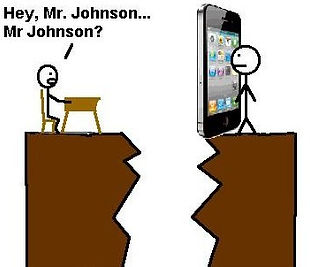Digital Citizenship
Digital Citizenship And Digital Access
Digital Access is the availability and accessibility of the use of technology by
Society
Data, Information, Knowledge (Hjelmervik & Wang, 2001 )
Data - is a set of independent, isolated facts, measurements, characters and symbols. Data is raw and often overabundant. While it may have meaning to experts or specialists, it is for the most part, only the building blocks on which relevance is built.
Example: let us look at the words - weight, material, teeth, 10 kilogram, steel, 26. Such figures, in themselves do not say anything meaningful.
Information - the beginning of meaning. Data has little use by itself unless it is converted into information. Information is data that is transformed into something that is more valuable by building a context around it so that it becomes understandable. Information is the result that people obtain after the process of gathering, organising, adjusting and analysing the raw data. The purpose of the information process is to make raw data become a structured, ordered and related product.
Example: let us use the example above to illustrate what information means. The weight of a gear is 10 kg. The material of the gear is steel. The number of teeth of the gear is 26. Now we get the meaningful information about the gear and a clear picture of the gear appears.
Knowledge - is the full utilisation of information and data, together with the potential of people's skills, capabilities and experiences. Knowledge is action that results from learning
The difference between data, information and knowledge is basically in the
processing: data is raw, unprocessed. Information is the outcome of the processing of data and knowledge is gained through interpretation of information.
Social Capital is the value of the number of active relationships gained by people connected through the use of social networks.
The digital divide separates those who can afford the costs and accessibility of digital connectivity and those who cannot, the 'haves and the have not's'.
The digital divide might then lead to loss of social capital which might affect some people's self-worth and confidences as well as leading to negative and at times dangerous reactions.
The divide would also limit the access of important information that could help people improve their lives.
Bibliography
i. American Libraries Association (ALA) [Online]. Available at:
http://connect.ala.org/node/181197 [Accessed 24 August 2015].
ii. Mike Ribble. Excerpted from Digital Citizenship in Schools, Second Edition. 2011.
ISTE (International Society for Technology in Education).




